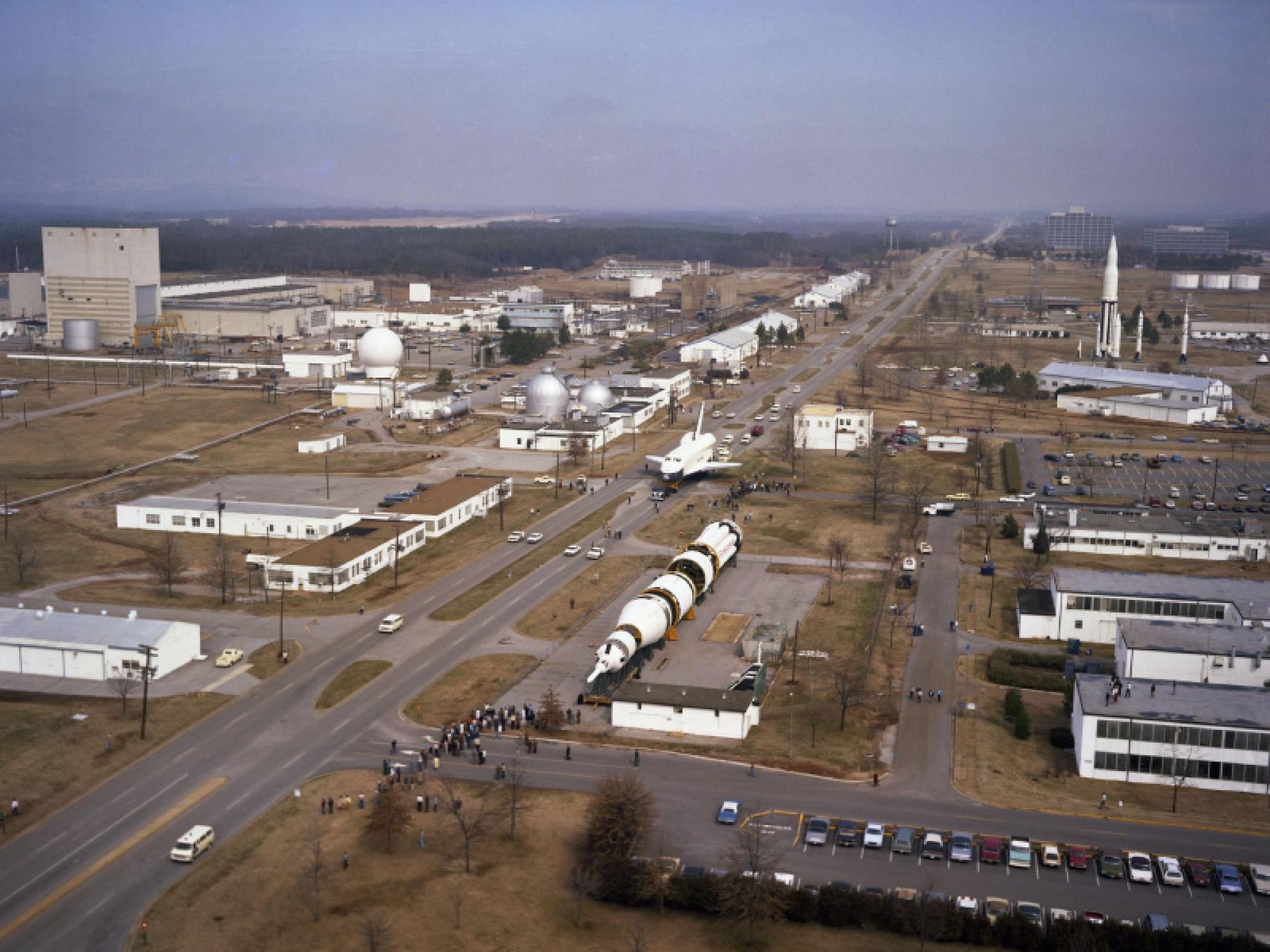Located in an area that once housed missile assembly and paint shops, the 7,000m2 site is contaminated with Chlorinated Solvents (incl. TCE), which had been used to clean and degrease equipment.
To remediate the contamination source zone, Mc2 has been working with Jacobs – and end-client, NASA – to design a comprehensive in-situ thermal remediation programme.
Tackling challenging ground conditions
Mc2’s remediation programme has been designed around the complex geology and groundwater conditions found at the site.
An intricate lithology of drift deposits over limestone bedrock requires the Thermal Treatment Zone (TTZ) to extend from 3.0 to 15mbgl, and always >0.5m into the undulating, competent bedrock.
A typical groundwater depth of 10m, combined with a very high groundwater velocity of 0.6-1.3m per day, means an aggressive energy input is needed as part of the design.
The Interim Remedial Action goals are to reduce TCE concentration to below 1,000 μg/L.
A world-first in thermal remediation
To address these unique site challenges, Mc2 has created an innovative in-situ thermal remediation design, using a combination of:
- Thermal conductive heating (TCH)
- Electrical resistive heating (ERH)
- Steam enhanced extraction (SEE)
- Multiphase extraction (MPE)
The TCH portion of the project will be provided by Mc2’s ground-breaking IT-DSP™ technology, and the ERH portion by Mc2’s ET-DSP™ technology.
This is believed to be the first thermal project in the world using three heating technologies in combination. Areas of high permeability and high groundwater flow will be addressed by SEE; the bulk of the TTZ (including bedrock) will be addressed using IT-DSP™; and low-access areas will be addressed by ET-DSP™.
To ensure these three technologies work in concert to result in thorough heating and remediation of the site, Mc2 is constructing both finite difference time-domain and finite element models of the thermal remediation and contaminant recovery.
The site bedrock has been carefully mapped into the thermal model to verify the target temperature has been achieved throughout the soil and bedrock portions of the treatment volumes.
Construction of this innovative remedial design will begin in July 2021, with the operations phase starting in early 2022. Completion/demobilisation is anticipated by the end of 2022.
Keep up with Mc2’s progress, here: www.mcmillan-mcgee.com
In numbers: a world-class thermal remediation design
To address the 7,000m2 TTZ, 60,000m3 of soil, and 4,300m3 of bedrock, Mc2’s design includes:
- Three-hundred heater wells, incorporating almost 1,700m of IT-DSP™ inductive heating coils
- One industry-leading heating intensity of >0.33kW/m of inductive heating coil, with an average power input of 5,600 kW
- Eighteen upgradient steam injection wells to pre-heat the fast-moving groundwater flux into the TTZ
- Thirty-one sensor/steam injection wells with 341 temperature sensors for real-time monitoring of subsurface conditions
- Fourteen ET-DSP™ electrodes in seven boreholes to provide heating in difficult-to-access area
- Twenty-nine deep multiphase extraction wells extracting approximately 5m3/h to maintain hydraulic control
- Seventy-five shallow vapor extraction wells extracting approximately 3,400m3/h to recover site contamination
- Nineteen shallow horizontal extraction wells to intercept and capture fugitive vapor emissions and protect site workers
- Soil vapor and groundwater treatment of extracted fluids, featuring heat removal/recovery and full telemetric control.








